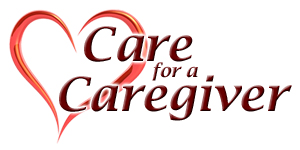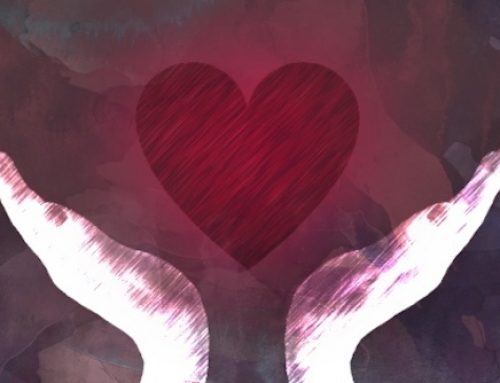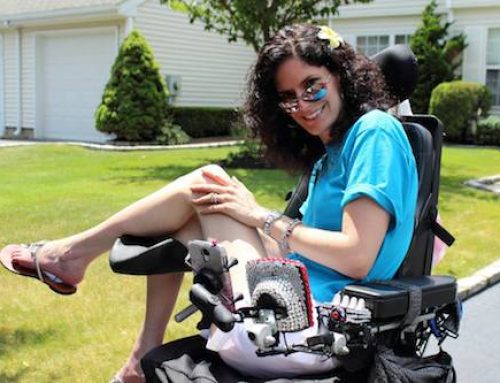I spent most of the yesterday in the emergency room with my daughter for symptoms of pressure in her brain. It wasnʼt where I wanted to be on one of the last days of summer, but it was exactly where God wanted me and I was glad for that.
 When these types of events interrupt my intended flow, I try to let go and let God do something different. Of course, my first concern is for my daughter, making sure that she is safe and comfortable and advocating for her needs within the healthcare system. From experience and from developing the art of reflection, I have learned to be observant and see if there may be new lessons to learn from these experiences.
When these types of events interrupt my intended flow, I try to let go and let God do something different. Of course, my first concern is for my daughter, making sure that she is safe and comfortable and advocating for her needs within the healthcare system. From experience and from developing the art of reflection, I have learned to be observant and see if there may be new lessons to learn from these experiences.
When I wheeled Johanna into the emergency room, it was empty. Relieved, I signed in at the desk.
As soon we sat down, the empty waiting room quickly began to fill up. What struck me immediately was that more than half of those waiting were family caregivers assisting a disabled person, mostly elderly people with cognitive issues who needed medical attention. I felt for these caregivers; all of them appeared tired and worn. I thought about how family caregivers spend so much of our lives advocating for the needs of those we love that we often times forget about the importance of self care and advocacy.
Caring for a person who is chronically ill and/or disabled is a tough job. Whether the caregiver is a child caring for a parent, a spouse caring for a spouse or a parent caring for a disabled child, each of these caregiver relationships have struggles which are unique to the situation. However, all of them share common experiences which are identified in caregivers. Among these common experiences are grief, anger, fear and loneliness.
I think grief is one of the hardest emotions for a caregiver to comprehend and express. Yet it is so important. We love those we care for but we grieve the person and the relationship that we lost. In the disability of a parent, the caregiving child often grieves a role reversal and mourns the loss of the sharing of wisdom that a elderly parent may have to offer. A caregiver for a spouse also feels grief for the loss of intimacy and the changes to the relationship which put a spouse in a parenting role. Parents who are caregivers grieve for unfulfilled dreams and desires which they had hoped for their child and the realization that their child may never live an independent life.
Anger is also a common emotion for caregivers. Unfortunately, we donʼt always express it in the right way and the right place. Caregivers may be angry at God, for allowing this to happen, at the medical profession for being unable to fix it or even at the disabled family member for needing us so much. It is important for caregivers to find appropriate ways to express anger through means such as counseling, journaling, even exercise. I know one caregiver who becomes a mean cleaning machine when she is angry. In the end, her house is spotless and she feels better about the anger too!
Fear grips family caregivers at the most inopportune moments and usually when we are trying to rest. When the whirlwind slows, thatʼs when fear can get the best of us. Fear of death, of economic hardships and even fear of becoming disabled ourselves all tend to exhaust us even while we are resting.
One of the most common topics written about for family caregivers is loneliness and depression. Being a caregiver can be very isolating, even if one has others involved. If you are the primary family caregiver, you know that your role is vitally important to your disabled family member, thus making it difficult to offer the needed attention to other vital relationships in oneʼs life.
For me and for all caregivers, the most important thing that we can do for our loved ones is to take care of ourselves. Whether we care for the elderly parent, the infirmed spouse, or the disabled child, all of these need us to take care of ourselves. Some days taking care of yourself means leaving everything to someone else so you can get away. Every day we need time and space to breathe through these common emotions of grief, fear, anger and depression. I make time to walk, to write, to pray and sing every day. These activities help me to rest from the worry and exercise my body, mind and spirit for restoration.
Caregivers need to be restored.
 As I looked around the emergency room and realized that more than half the people there were family caregivers taking care of disabled family members, I wanted to gather them all into one room and give them each a hug. I wanted to look into their eyes and tell them that what they do and who they are really matters to their family, to the world and to God. As I prayed for each of them, I thought of a scripture I read this week.
As I looked around the emergency room and realized that more than half the people there were family caregivers taking care of disabled family members, I wanted to gather them all into one room and give them each a hug. I wanted to look into their eyes and tell them that what they do and who they are really matters to their family, to the world and to God. As I prayed for each of them, I thought of a scripture I read this week.
Itʼs from the Book of Judges. The Lord was speaking with Gideon, telling him that God wanted Gideon to go and save Israel. Gideon was quite dismayed, seemingly discouraged about the trials that beset his people and questioned God.
When the angel of the Lord appeared to Gideon, he said, “The Lord is with you, mighty warrior.”
“Pardon me, my lord,” Gideon replied, “but if the Lord is with us, why has all this happened to us? Where are all his wonders that our ancestors told us about when they said, ‘Did not the Lord bring us up out of Egypt?’ But now the Lord has abandoned us and given us into the hand of Midian.”
The Lord turned to him and said, “Go in the strength you have and save Israel out of Midian’s hand. Am I not sending you?”
“Pardon me, my lord,” Gideon replied, “but how can I save Israel? My clan is the weakest in Manasseh, and I am the least in my family.”
The Lord answered, “I will be with you.” (Judges 11:12-16)
If you are caregiver, you are a mighty warrior like Gideon; and like Gideon, you have every right to question God and express your feelings. Then, when you are done questioning God and expressing yourself through conversational prayer, I encourage you to listen. When you do, you will hear God tell you to use the strength you have today, and know that God will be with you.
If you meet a caregiver today, give him or her a hug and tell them that you know and appreciate them for who they are and what they do for their family member. It will take but a few moments out of your day, but to a caregiver, your gesture of support will be remembered for a lifetime.
![]()

Eileen Benthal has a B.A. in theology from Franciscan University of Steubenville. She is a writer, speaker and wellness coach at 40DaysToFocus.com and NOFO Wellness Center. She works with clients locally and around the U.S. who are excited about balancing their health in body, mind and spirit.
Eileen and her husband Steve live in Jamesport and have four young adult children. Their youngest, 16-year-old Johanna, is a teenager with special needs. Eileen can be reached at eileenbenthal@gmail.com andfacebook.com/40DaysToFocus.






Leave A Comment